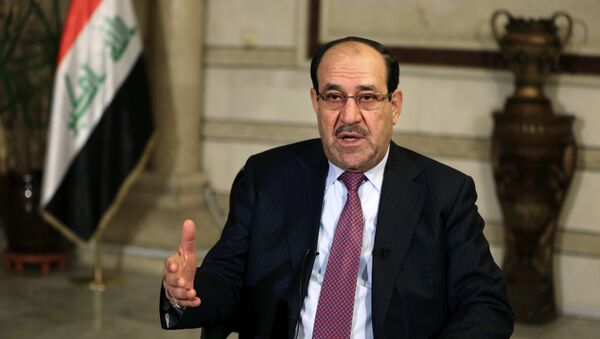Iraq's former prime minister and head of the Islamic Dawa Party Nouri al-Maliki condemned Saudi Arabia's execution of Shiite cleric Sheikh Nimr al-Nimr, pledging that the act would bring down the Saudi rulers.
In his condemnation, al-Maliki himself used sectarian language, referring to the execution of Shiite cleric Mohammed Baqir al-Sadr, founder of the Dawa Party. Al-Sadr was executed by Saddam Hussein's Sunni-dominated government in 1980, five months before the beginning of the notoriously destructive Iran-Iraq War.
"As we condemn this disgusting terrorist act and these detestable sectarian practices, we reaffirm that the crime of executing Sheikh al-Nimr will topple the Saudi regime, just as the crime of executing the martyr al-Sadr toppled the Saddam regime," al-Maliki said.
Al-Maliki currently holds several positions in Iraq's divided government, including a Vice Presidency. Much of the military power is shared between the military and Shiite militias. The overthrow of Saddam Hussein following the 2003 US invasion of Iraq led to a Shiite domination Iraq's politics and a two-year sectarian civil war with the Sunni faction amid a larger anti-US insurgency.
Iraq's military and militias recently forced ISIL (Daesh) out of the key town of Ramadi in the country's west.
Daesh is a terrorist group affiliated with Wahhabism, a radical branch of Sunni Islam which originated from an alliance between cleric Muhammad ibn Abd al-Wahhab and village chief Muhammad bin Saud in the 18th century. The alliance led to the creation of the Emirate of Diriyah, the predecessor of Saudi Arabia, and the founding of the al-Saud dynasty.



